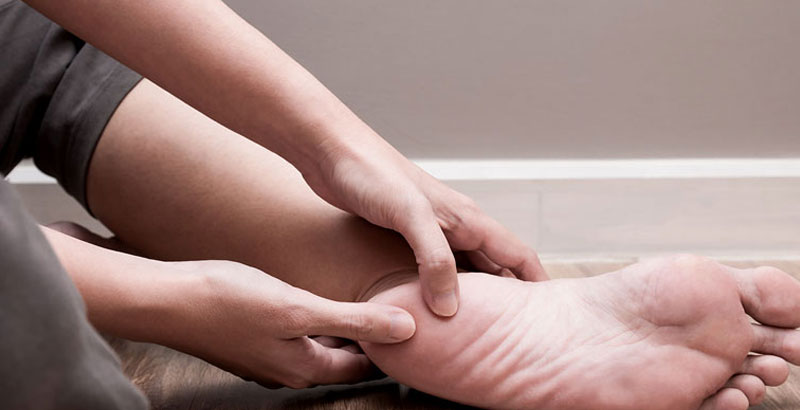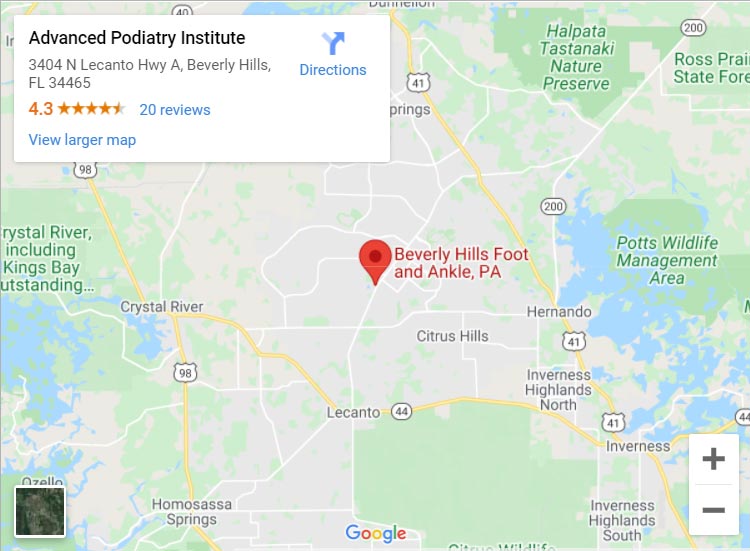One of the most common foot and ankle complaints center around the onset of heel pain. Millions of patients visit their health professional for heel-related pain, so if you have it, you are not alone! The good news is that heel pain can be alleviated with non-invasive treatment with great results if it is evaluated and diagnosed early.
What are the roots of heel pain?
It is important to remember that heel pain is caused by some underlying foot deformity or by repetitive trauma. For instance, the most widespread reason for heel pain is due to plantar fasciitis. The plantar fascia is a ligament which is a tissue that connects bone to bone (from the heel bone to the base of the toes) and helps to support the arch of the foot. Plantar fasciitis is the inflammation of said connective tissue and the pain manifests itself in the center heel region. The degree of pain may fluctuate, but the overall commonality is the experience of a sudden flare up soon after becoming mobile in the morning. Excessive running or jumping may lead to this condition.
Inflammation of the Achilles tendon (known as Achilles tendinitis) is also a contributor of heel pain. This pathology has many sources for its origin: injury, increased age, bone spurs, or tight calf muscles. If medical treatment is not received early, this condition may lead to muscle tearing, formation of scar tissue, and adhesions (an adhesion is a band of scar tissue that binds two normally separate tissues together)
The degeneration of the fat pads (also known as fat pad atrophy) in your foot can cause heel pain. The fat pads function as shock absorbers and if your feet strike hard surfaces it can lead to their thinning. Walking on hard surfaces with thin fat pads means your foot bones are absorbing the shock which leads to the pain.
Another reason for the development of heel pain is due to constant pounding of the foot on hard surfaces. Running on asphalt or concrete surfaces will lead to increased mechanical pressure/impact on your bones, joints and soft tissues versus running on turf or grass. You may also irritate tissues in the foot if you participate in prolonged high-impact exercise and play sports without stretching prior to your activity. A more common culprit is wearing ill-fitting shoes.
Most people, especially athletes try to ignore the signs of heel pain and keep on executing the action leading to their condition. As you may imagine, this ends up worsening the ailment and the heel pain could proceed into the chronic phase which leads to more problems!
Fortunately there are many non-invasive solutions to help with heel pain should you have it. It is definitely important to make sure an ultrasound of the area or radiographs are obtained to ensure there is no fracture or sprain in the area of question. You may be a candidate for custom-made or over-the-counter inserts that will reorient your foot while walking and distribute the ground reactive forces different. Anti-inflammatory medications may be helpful as well as rest, ice and elevation. You may need to be strapped, braced or placed in a walking boot depending on your diagnosis. Your doctor will know the best treatment option for your condition!
Think you have heel pain? Call Beverly Hills Foot and Ankle, PA for an appointment today at 352-513-4867!



